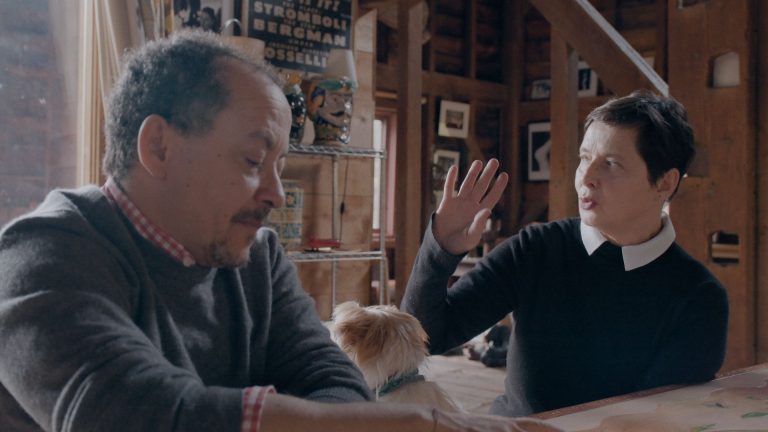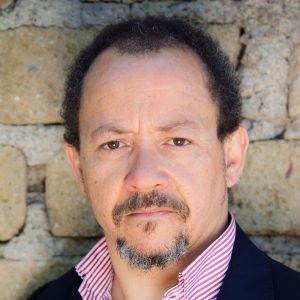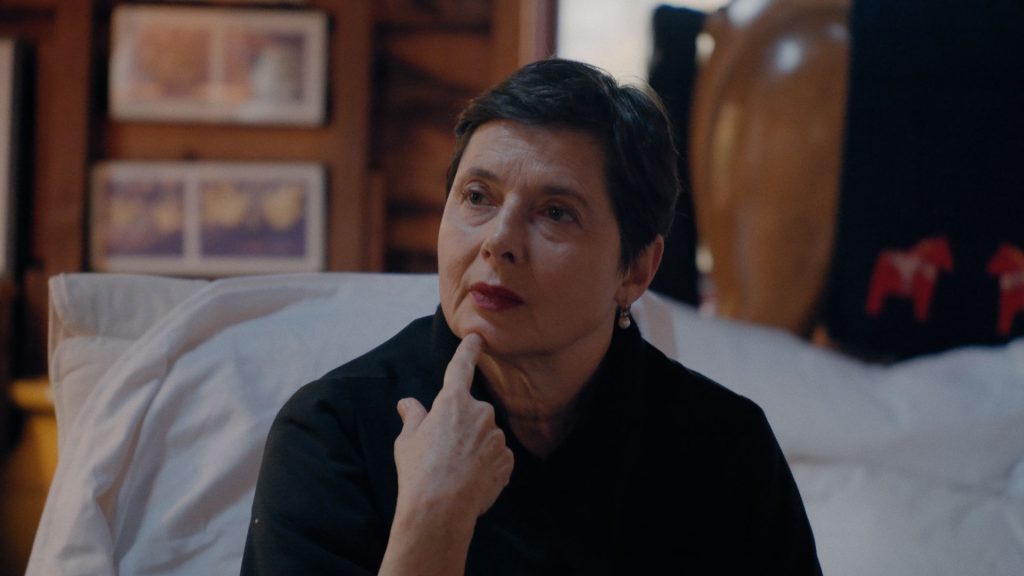
For some, cinema is a family business. There are numerous actors, directors, screenwriters, and producers who have been involved in film and television for generations, sometimes in collaboration with one another and in other cases entirely independently. While it can be a positive experience, it can also be stifling or scarring, forcing children into an industry and a life they may never have wanted. Alessandro Rossellini, the grandson of famed Italian filmmaker Roberto Rossellini and nephew of actress Isabella Rossellini, investigates the impact his grandfather’s legacy has had on much of his life in the documentary The Rossellinis.
Alessandro, who previously made a film about Ingrid Bergman, his grandfather’s second wife, has invented a disease that he believes is hereditary that he terms “Rossellinitis.” Symptoms, he says, include a broken moral compass and a predisposition towards polygamy. He explains that his grandfather left the world his masterpieces and not a penny to his family, but instead an enormous inheritance of family conflicts. He acknowledges the complicated mess that it his family history, assuring viewers that, if they are confused, his granddad will explain, as he does in interview footage shown moments later.

Alessandro buoyantly narrates his own film, sharing with audiences the motivations for his investigation and all that he has learned along the way. The expressions he uses are clever and entertaining, drawing some sort of twisted amusement from the absurdity of much of what he knows to be true. Describing how divorce was not an option in 1950s Italy and yet his father found a way to have three families is just one example. He’s also keenly aware of the significance of certain milestones, like the fact that his father is older than his grandfather was when he died, making him the “oldest Rossellini there has ever been.”
The interspersion of clips from some of Rossellini’s most formative and famous films, including Rome, Open City, aids in the grandeur of this complex genealogy lesson. The excerpts from his movies show how he perceived the world and what he sought to communicate to an adoring public. It conveys a strong sense of self-importance, one that didn’t necessarily translate to close familial relations with his many offspring in their separate lives. It’s not exactly fair to say that Alessandro resents his grandfather, but he does hold him responsible for passing along this allegedly hereditary condition.

Since Roberto died in 1977, he cannot speak for himself, and it’s only Alessandro’s recollections and those of the fellow family members he interviews, coupled with black-and-white footage of his Roberto’s television interviews from half a century ago, that can paint a picture of who really was. It’s intriguing, therefore, to see how Alessandro relates to his most famous living relative, Isabella, who audiences will also know from her extensive filmography. The two have an honest, hard conversation about Alessandro’s drug addiction and how he had previously come to her for money only to use it to feed his habit that serves as one of the film’s compelling scenes.
This family is indeed quite fascinating, consisting of a number of units from different countries, speaking different languages, and having lived very different experiences during and after Roberto’s life. It’s fitting that the title references the surname rather than the patriarch, since his influence is surely felt but has left others bearing his name to travel their own paths. While it does address the well-known work that Roberto created, this is also an intimate look at fractured personal relationships between Alessandro and his family, including his parents. The Rossellinis demonstrates that fame and fortune don’t always lead directly to happiness, and there’s often plenty buried under the surface.
Grade: B+
The Rossellinis makes its US premiere at DOC NYC on Sunday, November 14th and will be available to stream virtually through Sunday, November 28th.

